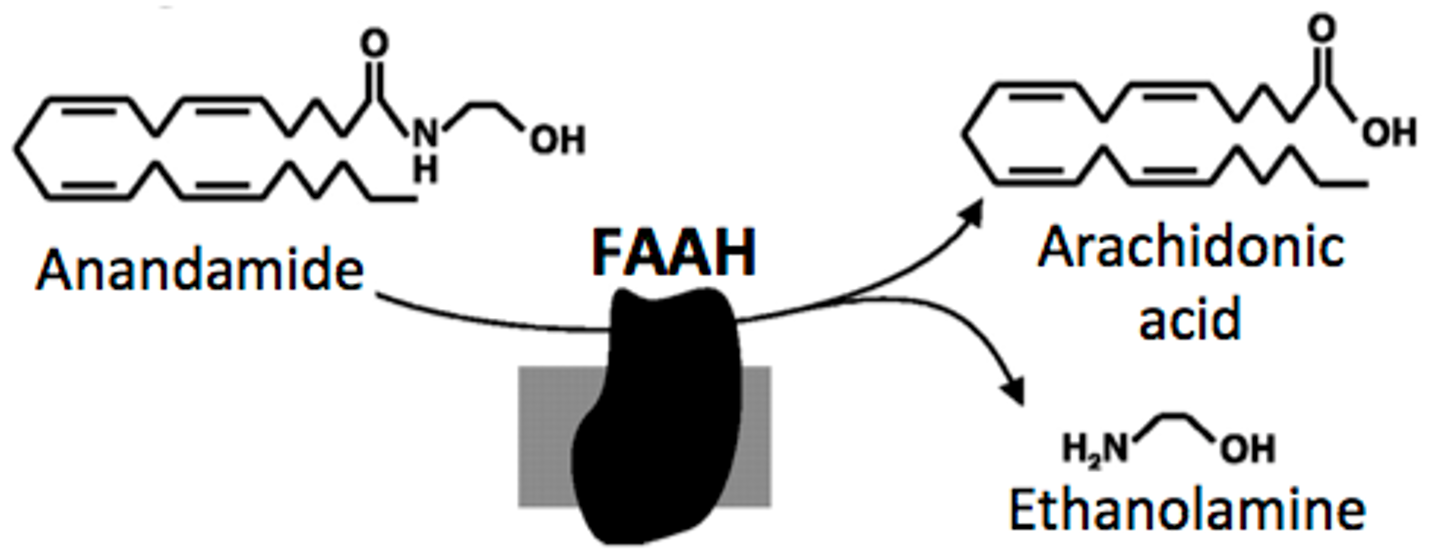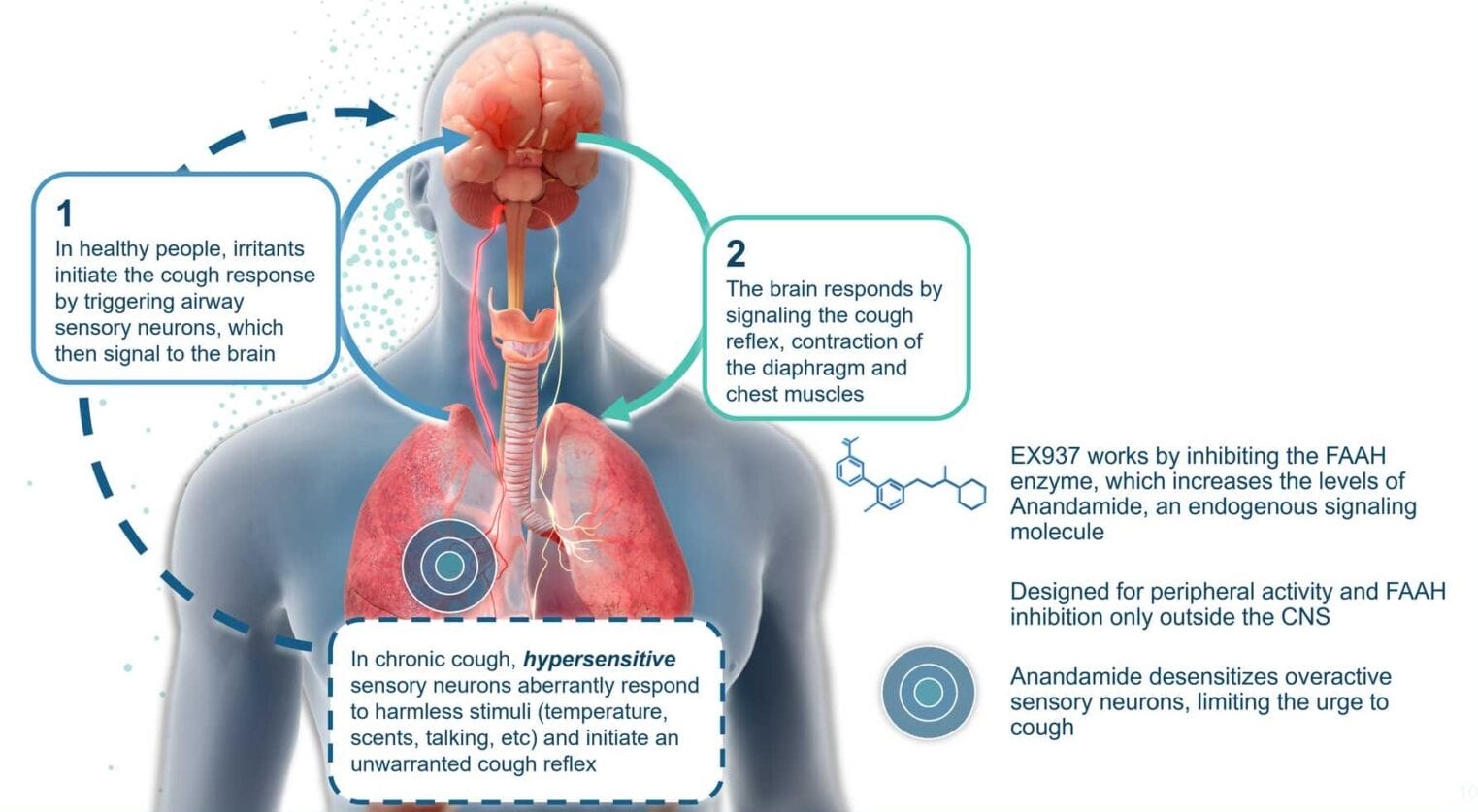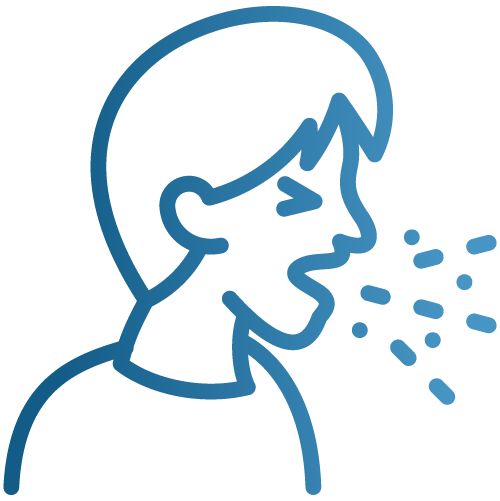Overview
Our Differentiated Approach to Treating Neuronal Hypersensitivity Disorders
We are committed to transforming the treatment of neuronal hypersensitivity disorders, such as refractory chronic cough, by addressing their root cause—overactive sensory neurons. Our peripheral FAAH inhibitor, EX937, accomplishes this by increasing the levels of anandamide, a natural signaling molecule which profoundly impacts the activity of sensory neurons. Our preclinical data indicate that increased anandamide levels have potential to bring relief to patients suffering from refractory chronic cough and other difficult-to-treat conditions.

How We Target Neuronal Hypersensitivity
One of the body’s natural mechanisms for regulating pain and sensory responses is the production of anandamide, a signaling molecule of the endocannabinoid system. In other words, anandamide is an on-demand messenger that is made in response to pain or stress, and it helps mitigate our experience of these. After exerting these beneficial effects, anandamide is disposed of by FAAH (fatty acid amide hydrolase), an enzyme that rapidly breaks down anandamide to inert products. Consequently, if we limit or block the activity of FAAH, which is possible with Exxel’s drug candidates, the levels of anandamide increase and so do the beneficial effects.

We Are Actively Targeting FAAH in the Periphery of the Body To:
✓ Harness and enhance the body’s natural mechanism for resolving stress and excessive sensory activity
✓ Reduce neuronal hypersensitivity, addressing the underlying driver of hypersensitivity disorders such as chronic cough
Potential to Be Used Across a Number of High Value Indications

Chronic Cough

Hyperactive Bladder

Peripheral Neuropathic Pain

Migraine Headache
We are rethinking how to treat neuronal hypersensitivity disorders to deliver solutions that are effective, well-tolerated and designed to improve patients’ lives.
Our Programs
EX937
EX937 is an innovative small molecule being developed for the treatment of refractory chronic cough, a condition that affects approximately 10% of the global population. Leveraging a novel and differentiated approach, by peripherally inhibiting the FAAH enzyme, EX937 has demonstrated marked efficacy and favorable safety in preclinical models.
EX14280 and EX14663
These globally active FAAH inhibitors leverage a chemical scaffold similar to EX937 to achieve body-wide enhancement of anandamide-mediated signaling. Substantial preclinical and clinical data with these and other FAAH inhibitors indicate potential usefulness in the treatment of Social Anxiety Disorder and Autism Spectrum Disorder.
